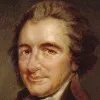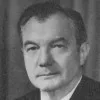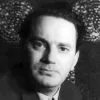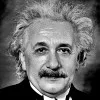Men’s ideas are like card-playing or any other game. Ideas which in the past I’ve seen considered reckless have since become commonplace, almost trivial, and adopted by men unworthy of sharing them. Ideas which now seem extraordinary will be regarded feeble and perfectly ordinary by our descendants.
[Les idées des hommes sont comme les cartes et autres jeux. Des idées que j’ai vu autrefois regarder comme dangereuses et trop hardies, sont depuis devenues communes, et presque triviales, et ont descendu jusqu’à des hommes peu dignes d’elles. Quelques-unes de celles à qui nous donnons le nom d’audacieuses seront vues comme faibles et communes par nos descendans.]Nicolas Chamfort (1741-1794) French writer, epigrammist (b. Nicolas-Sébastien Roch)
Products of Perfected Civilization [Produits de la Civilisation Perfectionée], Part 1 “Maxims and Thoughts [Maximes et Pensées],” ch. 2, ¶ 145 (1795) [tr. Parmée (2003), ¶ 115]
(Source)
(Source (French)). Alternate translations:Men’s ideas are like cards and other games. Ideas which I remember to have seen regarded as dangerous and over-bold have since become commonplace and almost trite, and have descended to men little worthy of them. So it is that some of the ideas which to-day we call audacious will be considered feeble and conventional by our descendants.
[tr. Hutchinson (1902), "The Cynic's Breviary"]Man's ideas are like card & other games. Ideas which I once heard stigmatised as dangerous and over-daring have since become common and even trivial, and have sunk to be the tenets of quite unworthy persons. Some ideas which we call audacious nowadays will seem feeble and ordinary to our descendants.
[tr. Mathers (1926)]The ideas of men are like cards and other games. ideas that at one time, to my own knowledge, were considered dangerous and rash, have since become general, almost commonplace, and have descended to men who are little worthy of them. Some of those that we call daring will seem feeble and ordinary to our descendants.
[tr. Merwin (1969)]The ideas of men are like cards and other games. Some ideas, which formerly I observed to be considered dangerous and intemperate, have since become universal, even trivial, and have been adopted by men scarcely worthy of them. Some notions which we call bold will be regarded as feeble and commonplace by our descendants.
[tr. Pearson (1973)]
Quotations about:
heterodoxy
Note not all quotations have been tagged, so Search may find additional quotes on this topic.
Cruel and savage as orthodoxies have always proved to be, the faithful seem able to convince themselves that the heretics, as they continue to crop up, get nothing worse than their due, and to rest with an easy conscience.
Learned Hand (1872-1961) American jurist
Speech (1955-01-29), “A Fanfare for Prometheus,” American Jewish Committee annual dinner, New York City
(Source)
For, does the reader inquire into the subject-matter of controversy in this case; what the difference between Orthodoxy or My-doxy and Heterodoxy or Thy-doxy might here be?
Thomas Carlyle (1795-1881) Scottish essayist and historian
The French Revolution: A History, Part 2, Book 4, ch. 2 (2.4.2) (1837)
(Source)
Since the earliest days, philosophers have dreamed of a country where the mind and spirit of man would be free; where there would be no limits to inquiry; where men would be free to explore the unknown and to challenge the most deeply rooted beliefs and principles. Our First Amendment was a bold effort to adopt this principle — to establish a country with no legal restrictions of any kind upon the subjects people could investigate, discuss, and deny.
Hugo Black (1886-1971) American politician and jurist, US Supreme Court Justice (1937-71)
James Madison Lecture, NYU School of Law (1960-02-17)
(Source)
The inaugural Madison lecture. Reprinted as "The Bill of Rights," NYU Law Review, Vol. 35 (Apr 1960)
A nation which, in the name of loyalty or of patriotism or of a sincere and high-sounding idea, discourages criticism and dissent, and puts a premium on acquiescence and conformity, is headed for disaster.
Right conclusions are more likely to be gathered out of a multitude of tongues, than through any kind of authoritative selection. To many this is, and will always be, folly; but we have staked upon it our all.
Learned Hand (1872-1961) American jurist
United States v Associated Press, 52 F. Supp. 362, 372 (1943)
(Source)
A nation that silences or intimidates original minds is left only with unoriginal minds and cannot hope to hold its own in the competition of peace or of war.
Henry Steele Commager (1902-1998) American historian, writer, activist
“Free Enterprise in Ideas,” Freedom, Loyalty, Dissent (1954)
(Source)
Originally published in the Saturday Review (1952), based on a speech to the Advertising Council's American Round Table, New York City (1951).
The greatest danger that threatens us is neither heterodox thought nor orthodox thought, but the absence of thought.
Henry Steele Commager (1902-1998) American historian, writer, activist
Civil Liberties under Attack (1951)
(Source)
Censors don’t want children exposed to ideas different from their own. If every individual with an agenda had his/her way, the shelves in the school library would be close to empty.
From such Considerations as these it follows, that I ought never to be angry with any one for differing in Judgment from me. For how know I but the Point in dispute between us, is one of those Errors that I have embrac’d as Truth. If I am in the Wrong, I should not be displeas’d that another is in the Right. If I am in the Right, ’tis my Happiness; and I should rather pity than blame him who is unfortunately in the Wrong.
Benjamin Franklin (1706-1790) American statesman, scientist, philosopher, aphorist
Letter to Josiah Franklin (Apr 1738) [draft]
(Source)
His father.
You both seem concern’d lest I have imbib’d some erroneous Opinions. Doubtless I have my Share, and when the natural Weakness and Imperfection of Human Understanding is considered, with the unavoidable Influences of Education, Custom, Books and Company, upon our Ways of thinking, I imagine a Man must have a good deal of Vanity who believes, and a good deal of Boldness who affirms, that all the Doctrines he holds, are true; and all he rejects, are false. And perhaps the same may be justly said of every Sect, Church and Society of men when they assume to themselves that Infallibility which they deny to the Popes and Councils. I think Opinions should be judg’d of by their Influences and Effects; and if a Man holds none that tend to make him less Virtuous or more vicious, it may be concluded he holds none that are dangerous; which I hope is the Case with me.
Benjamin Franklin (1706-1790) American statesman, scientist, philosopher, aphorist
Letter to Josiah and Abiah Franklin (13 Apr 1738)
(Source)
His parents.
The truth is always in the minority, and the minority is always stronger than the majority, because as a rule the minority is made up of those who actually have an opinion, while the strength of the majority is illusory, formed of that crowd which has no opinion — and which therefore the next moment (when it becomes clear that the minority is the stronger) adopts the latter’s opinion, which now is in the majority, i.e., becomes rubbish by having the whole retinue and numerousness on its side, while the truth is again in a new minority.
The surest way to corrupt a youth is to instruct him to hold in higher esteem those who think alike than those who think differently.
The freethinking of one age is the common sense of the next.
I may stand alone,
But would not change my free thoughts for a throne.
From the dissensions among Sects themselves arise necessarily a right of choosing and necessity of deliberating to which we will conform. But if we choose for ourselves, we must allow others to choose also, and so reciprocally, this establishes religious liberty.
Thomas Jefferson (1743-1826) American political philosopher, polymath, statesman, US President (1801-09)
Essay (1776-10?), “Notes on Religion”
(Source)
Labeled by Jefferson "Scraps Early in the Revolution." Modern rendering. Original:From the dissensions among sects themselves arises necessarily a right of chusing & necessity of deliberating to which we will conform, but if we chuse for ourselves, we must allow others to chuse also, & to reciprocally. This establishes religious liberty.
Another and more special provision has been made by one of the amendments to the Constitution, which expressly declares, that “Congress shall make no law respecting an establishment of religion, or prohibiting the free exercise thereof, or abridging the freedom of speech, or of the press,” thereby guarding, in the same sentence, and under the same words, the freedom of religion, of speech, and of the press, insomuch that whatever violated either throws down the sanctuary which covers the others, — and that libels, falsehood, and defamation, equally with heresy and false religion, are withheld from the cognizance of federal tribunals.
Thomas Jefferson (1743-1826) American political philosopher, polymath, statesman, US President (1801-09)
Document (1798), “Kentucky Resolutions,” Resolution 3
(Source)
In protest of the Alien and Sedition Acts.
I believe in one God, and no more; and I hope for happiness beyond this life.
I believe in the equality of man; and I believe that religious duties consist in doing justice, loving mercy, and endeavouring to make our fellow-creatures happy.
But, lest it should be supposed that I believe many other things in addition to these, I shall, in the progress of this work, declare the things I do not believe, and my reasons for not believing them.
I do not believe in the creed professed by the Jewish Church, by the Roman Church, by the Greek Church, by the Turkish Church, by the Protestant Church, nor by any church that I know of. My own mind is my own church.
All national institutions of churches, whether Jewish, Christian or Turkish, appear to me no other than human inventions, set up to terrify and enslave mankind, and monopolize power and profit.
Thomas Paine (1737-1809) American political philosopher and writer
The Age of Reason, Part 1, ch. 1 (1794)
(Source)
Whoever has an opinion of his own, and honestly expresses it, will be guilty of heresy. Heresy is what the minority believe; it is the name given by the powerful to the doctrine of the weak.
Robert Green Ingersoll (1833-1899) American lawyer, agnostic, orator
Lecture (1874-05-03), “Heretics and Heresies,” Free Religious Society, Kingsbury Hall, Chicago
(Source)
Collected in The Gods and Other Lectures (1876).
But is uniformity of opinion desirable? No more than of face and stature. Introduce the bed of Procrustes then, and as there is danger that the great men may beat the small, make us all of a size, by lopping the former and stretching the latter. Difference of opinion is advantageous in religion. The several sects perform the office of a Censor morum over each other. Is uniformity attainable? Millions of innocent men, women, and children, since the introduction of Christianity, have been burnt, tortured, fined, imprisoned; yet we have not advanced one inch towards uniformity. What has been the effect of coercion? To make one half the world fools, and the other half hypocrites. To support roguery and error all over the earth.
Thomas Jefferson (1743-1826) American political philosopher, polymath, statesman, US President (1801-09)
Notes on the State of Virginia, Query 17 (1782)
(Source)
Progress generally begins in skepticism about accepted truths. Intellectual freedom means the right to reexamine much that has been long taken for granted. A free man must be a reasoning man, and he must dare to doubt what a legislative or electoral majority may most passionately assert. The danger that citizens will think wrongly is serious, but less dangerous than atrophy from not thinking at all.
Robert H. Jackson (1892-1954) US Supreme Court Justice (1941-54), lawyer, jurist, politician
American Communications Assn. v. Douds, 339 U.S. 382, 442 (1950) [concurrence and dissent]
(Source)
Standing in the presence of the Unknown, all have the same right to think, and all are equally interested in the great question of origin and destiny. All I claim, all I plead for, is liberty of thought and expression. That is all.
I believe that that community is already in process of dissolution where each man begins to eye his neighbor as a possible enemy, where non-conformity with the accepted creed, political as well as religious, is a mark of disaffection; where denunciation, without specification or backing, takes the place of evidence; where orthodoxy chokes freedom of dissent; where faith in the eventual supremacy of reason has become so timid that we are not enter our convictions into the open list, to win or lose. Such fears as these are a solvent which can eat out the cement that binds the stones together; they may in the end subject us to a despotism as evil as any that we dread; and they can be allayed only in so far as we refuse to proceed on suspicion, and trust one another until we have tangible ground for misgiving,
Learned Hand (1872-1961) American jurist
“A Plea for the Open Mind and Free Discussion,” speech, University of the State of New York, Albany (1952-10-24)
(Source)
It is clear that the most elementary condition, if thought is to be free, is the absence of legal penalties for the expression of opinions. No great country has yet reached to this level, although most of them think they have. The opinions which are still persecuted strike the majority as so monstrous and immoral that the general principle of toleration can not be held to apply to them. But this is exactly the same view as that which made possible the tortures of the Inquisition. There was a time when Protestantism seemed as wicked as Bolshevism seems now.
Bertrand Russell (1872-1970) English mathematician and philosopher
“Free Thought and Official Propaganda,” lecture, South Place Institute, London (1922-03-24)
(Source)
On the necessary points, unity. On the questionable points, liberty. In everything, love.
[In necessariis unites, in non necessariis libertas, in omnibus caritas.]
Rupertus Meldenius (1582-1651) German writer [pseud. of Peter Meiderlin]
Paraenesis Votiva pro Pace Ecclesiae ad Theologos Augustanae Confessionis [Votive Counsel for the Peace of the Church, to the Theologians of the Augustan Confession] (1626)
Also translated as "essentials" and "non-essentials."
Paraphrase of final lines of the work:Verbo dicam: Si nos servaremus IN necesariis Unitatem, IN non-necessariis Libertatem, IN UTRISQUE Charitatem, optimo certe loco essent res nostrae.
[In a word, were we to observe unity in essentials, liberty in incidentals, and in all things charity, our affairs would be certainly in a most happy situation.]
Commonly attributed to St Augustine, but also to John Wesley, Richard Baxter, and several others.
In necessary things, unity; in disputed things, liberty; in all things, charity.
First as to Speech. That privilege rests upon the premise that there is no proposition so uniformly acknowledged that it may not be lawfully challenged, questioned, and debated. It need not rest upon the further premise that there are no propositions that are not open to doubt; it is enough, even if there are, that in the end it is worse to suppress dissent than to run the risk of heresy.
Learned Hand (1872-1961) American jurist
“The Guardians,” Oliver Wendell Holmes Lecture #3, Harvard University (1958)
(Source)
Speaking of the First Amendment to the US Constitution.
The legitimate powers of government extend to such acts only as are injurious to others. But it does me no injury for my neighbor to say there are twenty Gods, or no God. It neither picks my pocket nor breaks my leg.
Thomas Jefferson (1743-1826) American political philosopher, polymath, statesman, US President (1801-09)
Notes on the State of Virginia, Query 17 (1782)
(Source)
“They’re certainly entitled to think that, and they’re entitled to full respect for their opinions,” said Atticus, “but before I can live with other folks I’ve got to live with myself. The one thing that doesn’t abide by majority rule is a person’s conscience.”
Harper Lee (1926-2016) American writer [Nellie Harper Lee]
To Kill a Mockingbird, ch. 11 (1960)
(Source)
It is clear that thought is not free if the profession of certain opinions makes it impossible to earn a living.
Bertrand Russell (1872-1970) English mathematician and philosopher
“Free Thought and Official Propaganda,” lecture, South Place Institute, London (1922-03-24)
(Source)
Few people are capable of expressing with equanimity opinions which differ from the prejudices of their social environment. Most people are even incapable of forming such opinions.
[Wenige sind imstande, von den Vorurteilen der Umgebung abweichende Meinungen gelassen auszusprechen; die Meisten sind sogar unfähig, überhaupt zu solchen Meinungen zu gelangen.]
Albert Einstein (1879-1955) German-American physicist
“Neun Aphorismen” (23 May 1953), Essays Presented to Leo Baeck on the Occasion of His Eightieth Birthday (1954) [Einstein Archives 28-962]
(Source)


























